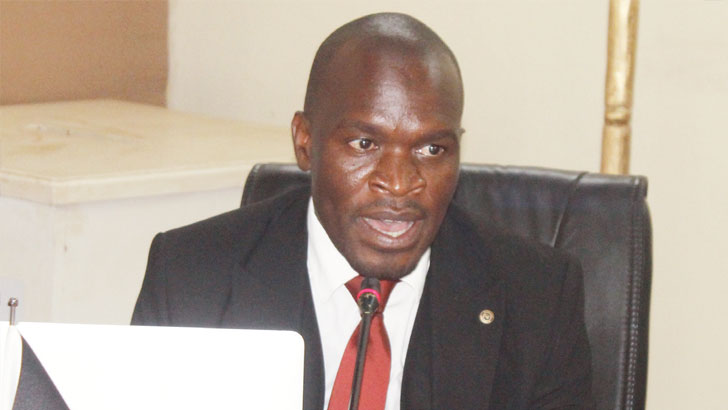AG spits venom on fraudsters
Attorney General Thabo Chakaka-Nyirenda has vowed to fight against any abuse of public resources, saying all contracts will be diligently scrutinised and accomplices in public services will be interdicted without pay. The government’s top attorney also told journalists in Lilongwe that he will start reclaiming public funds from plunderers. Our Staff Writer SUZGO CHITETE engaged Nyirenda on his avowed crusade.

Q: Isn’t your position on interdiction without pay a departure from the stance that was backed by your predecessor Chikosa Silungwe, Malawi Law Society and the High Court? Why are you going against this popular opinion?
A: I am aware of all those legal opinions, including the High Court judgement in [Gift] Chinomba’s [case] versus the Attorney General. My argument is that public servants who are suspected of stealing public funds and are on interdiction must not be paid for a simple reason that they are not working. You are not paid for filling a position, but for working. I guess that is the spirit of the Malawi Public Service Regulations, which demands that such employees must not be paid when on interdiction.
Q: But why should government punish suspects who ought be presumed innocent until proven guilty by a competent court of law?
A:This does not mean we are presuming that these suspects are guilty. This is why they are not fired, but just put on interdiction. The law deliberately provides that once they are exonerated, they must be put back on payroll. Think of someone who gets K100 000 a month and spends K30 000 on transport and food as they go to work. And then someone gets full pay without working for it. It is really absurd. It is this attitude that makes us poor. This does not happen elsewhere. We need to change our way of doing business.
Q: Mustn’t they be paid because they are just suspects and it is not their decision to stop working, but their employer’s?.
A:My point is they must not be paid because they are not working. Others justify payment for these officers based on the Employment Act, but the same law allows employees who are sick for a certain period of time to be removed from the payroll because they are not working. Here is someone who has done no wrong, but is removed from payroll. Why then should we maintain someone who has stolen public funds who is also not working? Does this really make sense?
Q: You have expressed concerns about public contracts being concentrated into a few hands you call cartels. What do you mean?
A: It is just an acceptable that few people register so many companies and get all the public contracts. We need to share these opportunities. We will ensure that all public contracts go through rigorous due diligence. In fact we want to promote buy Malawian. Each government ministry, department and agency must give preference to local firms. Each government institution shall be required to submit evidence that they had offered Malawian firms a chance before [offering contracts to] foreign businesses. We cannot be given all contracts to foreign firms even when the task can be executed by local firms. We have to make the ‘buy Malawian’ a reality.
Q:Knowing that government is a continuation, why do you want to investigate the sale of Malawi Savings Bank (MSB) which was signed and sealed by the government? What specifics will your investigations focus on?
A:This is disposal of public assets which has to follow the Public Procurement and Disposal of Assets Act of 2017. You need to advertise and people bid. Once [a public asset is] disposed, the money has to be deposited into Account NumberOne. But did Account Number One get that money [from MSB sale]? And there are also some loans the government inherited that were given by MSB, did we recover that money? When it comes to those politically exposed people who got the said loans, were there some interference to have the loans given to them? So we want these questions answered. If we find some criminal elements, the people involved will be prosecuted accordingly.
Q: You have also vowed to go against people who have stolen public funds and recover the funds. How will you do this?
A: That is an important question. I have huge claims from various firms that want government to compensate them, but I think we need to go after those people whose decisions have led government to lose such huge funds. For example, we have a claim from a firm that is demanding over K30 billion because of the procurement of ambulances by the Ministry of Health where we gather officials were taken to the UK by the bidder who spent money on them for shopping and allowances, yet no ambulance was supplied. We have instituted an investigation on this. If we find criminal elements, concerned officers will face the law.
Q: You sound overwhelmed, how will you manage this?
A: On claims, we will be engaging public lawyers on contingency basis to claim the funds on our behalf. No win, no fees. But if they win the cases, they will get an agreed percentage of the claim—for example, 20 percent.
That way, we will move with speed.





